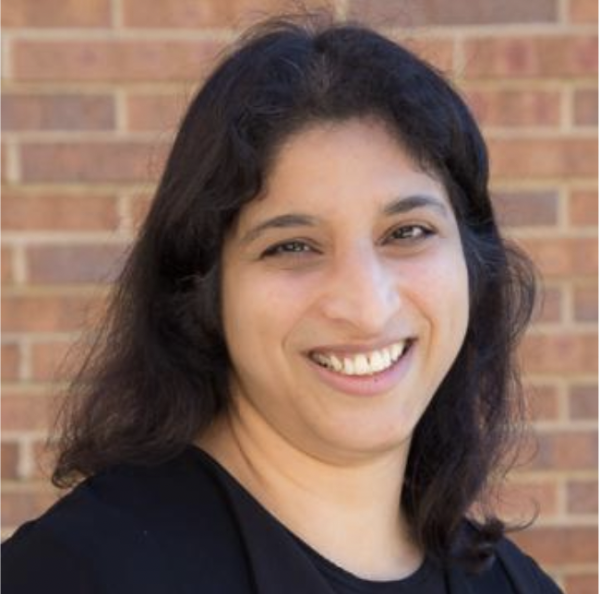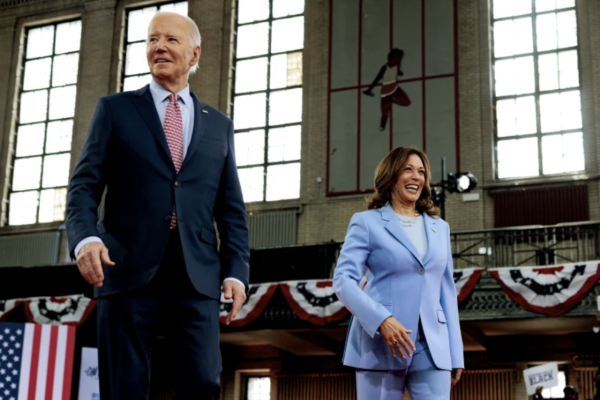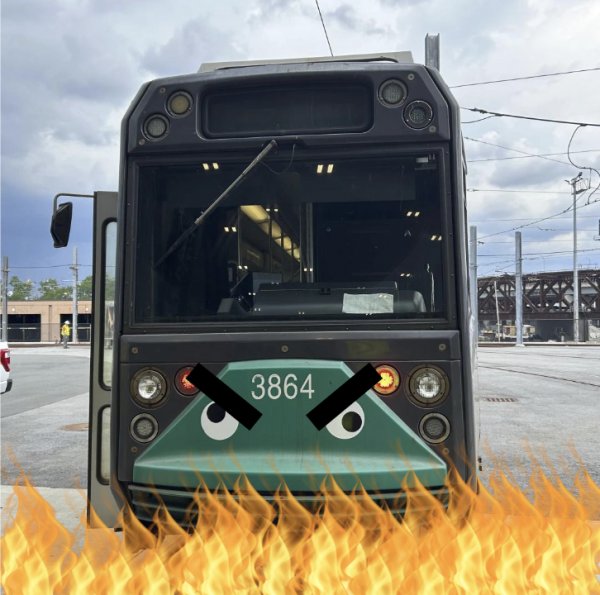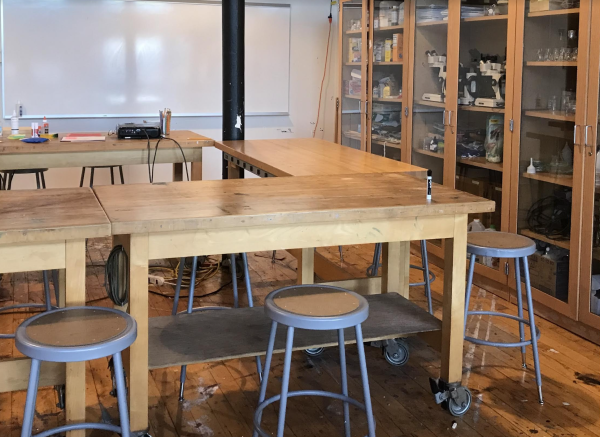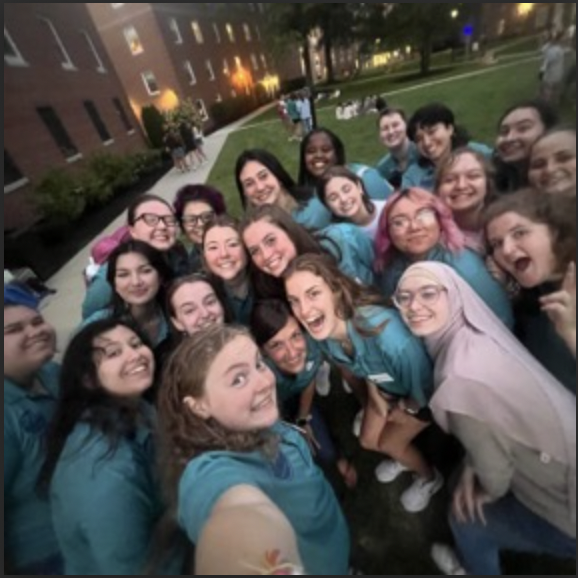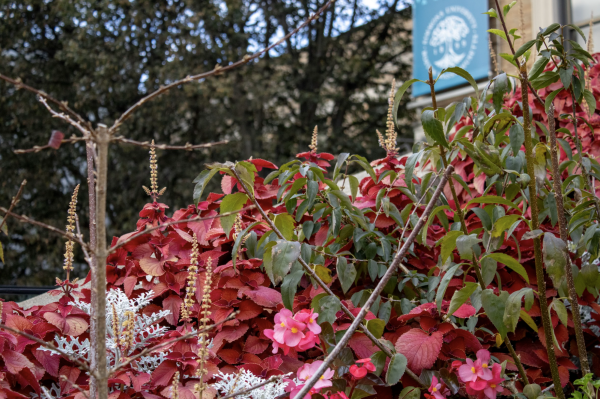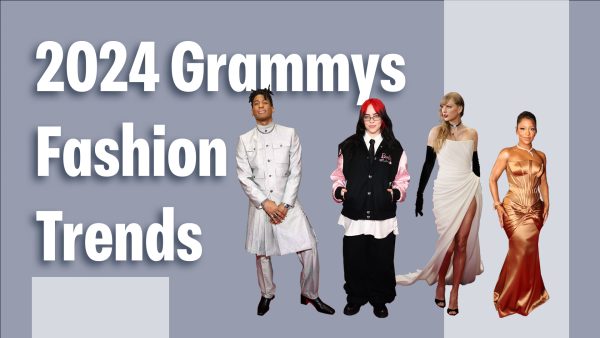Electoral politics won’t bring the change we need
“I’m not cynical or jaded. I just think, to an extent, the sanctity of voting for president is a cop out. It is harm reduction in its most basic form. Which is not to say that I don’t think that we should vote – but we can be doing more.”
May 21, 2020
In 2016, as a fledgling high school liberal, I was devastated that I missed my chance to vote in the presidential election by 20 days. I rallied for Hillary; I encouraged older friends to vote, worked voter registration drives, etc.
At that time, nothing felt more important to me than who would become president. A couple election cycles later, and I find myself coming to terms with the fact that I may choose not to vote in the upcoming presidential election.
My own disappointment in the presumptive nominee aside, I’m not just considering an abstention, in what many would consider to be the most important election of my lifetime, because I dislike the candidates presented to me. Instead, I’m considering what role I foresee any president playing in the society that I want to work towards – and simply put, I don’t foresee any president playing a role in that movement.
Now, what I’m ultimately considering is that electoral politics will not save us and can never be used as a legitimate tool in a movement for radical change.
This is a big claim coming from someone who’s spent the last three years working almost exclusively in electoral politics. My disdain for electoral politics is generally contained to national elections. I love working with state and local candidates, and I feel deeply optimistic about their ability to move their communities forward. But It feels like a real cognitive dissonance to be passionate about state and local elections and to simultaneously recognize that at least at a national level, electoral politics do not inspire change.
It makes more sense to me when I consider why I ever felt that voting was the ‘’end all be all’’ to civic engagement in the first place. If you asked me at age 18 why I felt passionate about voting, I’m sure I would have told you that it was my duty to vote – especially considering my positionality as a white, upper middle class person.
I don’t necessarily discard that idea now. I think that voting, even marginally, is still a form of harm reduction. There is also a sense of responsibility that comes into play when you consider that the right to vote is not extended to every constituent – elected officials still represent noncitizens, though they are unable to vote. Conversations about who does and does not vote and conversations about privilege need to happen in conjunction.
To put it simply, we vote because we want change. We want to reduce harm where we can. But even the relief of electing a democratic president would be a symbolic relief. You can’t preside over an oppressive system without benefiting from it.
I won’t deny that I would feel better about voting if Bernie were the nominee. But when I think about the systemic change that I’m interested in seeing, even Bernie (The most ‘’radical’’ or ‘’progressive’’ candidate on the national stage) feels like a compromise. And after watching the DNC pull out every stop to cut off my compromise candidate before he could reach the convention, it’s clearer than ever the extent to which the electoral process goes to prop up party elites. In February, 93 superdelegates interviewed by the New York Times overwhelmingly opposed handing Bernie the party nomination, even if he arrived at the convention with the most delegates. How can we consider that a legitimate route to radical change? We can’t.
When Bernie suspended his campaign, to many, it felt like a massive blow to the movement. Mike McCabe, the head of Our Revolution Wisconsin, notably described it as a ‘’gut punch’’ to the progressive movement. I’m hesitant to throw myself fully behind any presidential candidate, but I won’t pretend that the energy and passion that my peers had for his campaign didn’t make me more optimistic. But we can’t think of this as hitting a wall.
If we redirect our passion and energy into grassroots social movements and state and local campaigns, we will make significant change from the ground up. At town, city or state levels, we possess more power as constituents than we realize. It can feel as if those higher up on the electoral ladder don’t seem to be held accountable to the standards they might preach. Prominent Democrat endorsements of Joe Biden are one example – directly contradicting previous promises to support the #metoo movement and facing virtually no repercussions from voters or media.
Unique proximity to constituents means that local elected officials are more beholden to the needs of their represented communities. We decide if they work for us or if they don’t. Voter or not – engaging with your local elected officials is accessible and effective. Mobilizing a community to stand behind their chosen representative or to work to effectively remove them requires only an amount of dedication that is generally reserved for presidential election years. Studies, like ones conducted by the PRRI, find that engagement in elections is consistently lower in midterm years, and lower still at the local level. Within our communities exist countless social movements, organizations and activists who are doing the work to make a system that was built for a few, work for us all. From reproductive rights organizations to criminal justice reform, behind any social issue that a presidential candidate claims to support are groups that are already doing the work.
I’m not cynical or jaded. I just think, to an extent, the sanctity of voting for president is a cop out. It is harm reduction in its most basic form. Which is not to say that I don’t think that we should vote – but we can be doing more.
I’m not sure if I will cast a vote for president in November. I’m not very interested in another ‘’lesser of two evils’’ situation. I’m interested in ensuring that the communities that I exist in are well represented. I’m interested in dismantling a broken system.
Consider why you vote, and consider if there is another more effective way to make the change that you want to see. Take the passion you had for Bernie and direct it to your city council, state rep or school board races. Begin by holding your community representatives more accountable than ever and support the work of those that are working to disrupt the system. I’m more optimistic every day about the work being done, and I’m excited to see where it will take us.




